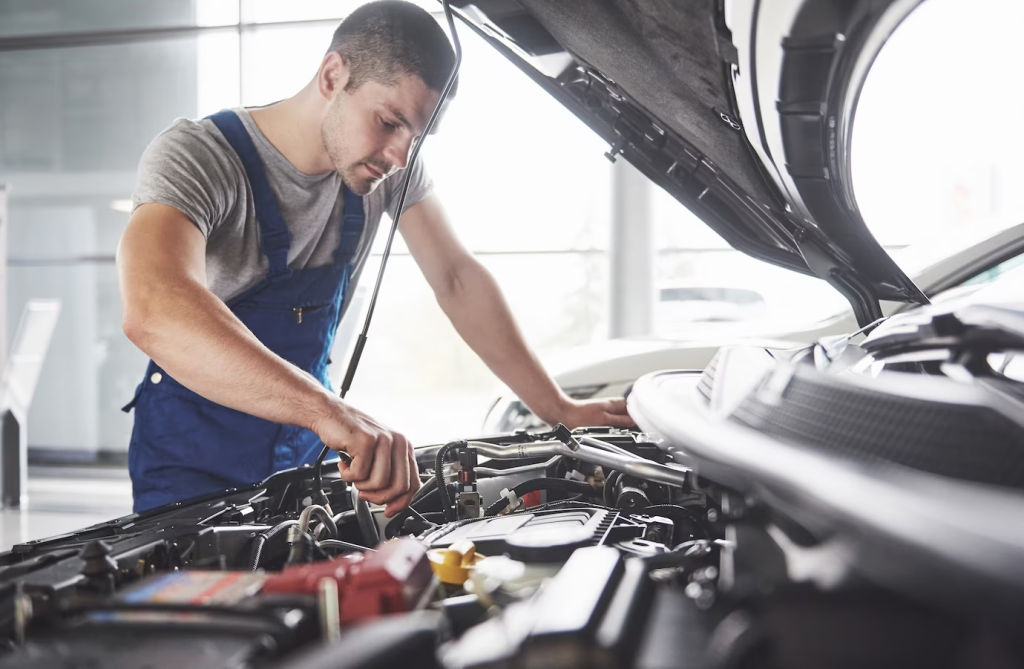If you’re a car owner, you know that maintaining your engine’s performance is crucial to keeping your vehicle running smoothly. Not only does a well-maintained engine provide better performance, but it can also save you money in the long run by reducing oil consumption and preventing costly repairs. In this article, we’ll provide five tips for maintaining your engine’s performance and keeping your car running smoothly.

One of the easiest ways to maintain your engine’s performance is by using oil additives. Oil additives can help reduce oil consumption and prevent engine knocking and lifter ticks. There are many different types of oil additives available, so it’s important to choose the right one for your vehicle. If you’re not sure which oil additive is right for your car, check out this list of the top 5 oil additives for lifter ticks and engine knocking.
In addition to using oil additives, here are five other tips for maintaining your engine’s performance:
1. Change Your Oil Regularly

Regular oil changes are crucial for maintaining the performance and longevity of your engine. As oil circulates through the engine, it collects dirt, debris, and other contaminants, which can cause the oil to break down, and also become worse at protecting and lubricating the engine’s components. As a result, the engine can experience increased tear and wear, reduced fuel efficiency, and poor performance. Neglecting regular oil changes can ultimately lead to costly repairs or even the need for an engine replacement.
The frequency of oil changes will depend on several factors, including your driving habits, the type of oil you use, and the age of your car. In general, it’s recommended that you change your oil every 3,000 to 5,000 miles. However, newer cars may be able to go longer between oil changes, and some high-performance cars may require more frequent oil changes.
2. Keep Your Engine Clean
A clean engine is essential to keep it running efficiently and reliably. Dirt and debris can build up on your engine, impeding the airflow and causing your engine to work harder, reducing fuel efficiency and horsepower. A dirty engine can also lead to corrosion, rusting, and damage to electrical components. Regular cleaning and maintenance of your engine can help prevent these issues and prolong its lifespan. You can use a combination of water, soap, and degreasers to clean your engine safely and effectively, depending on the level of buildup. A clean engine not only looks better but also helps ensure that your vehicle operates at peak performance, saving you money on costly repairs in the long run.
It’s important to note that cleaning your engine is not just about appearance. A clean engine runs cooler and is less likely to overheat, which can cause serious damage to your car.
3. Check Your Fluid Levels
Besides oil, other fluids play a vital role in your car’s engine performance. Coolant helps regulate engine temperature and prevent overheating, while transmission fluid lubricates gears and enhances smooth gear changes. Brake fluid is necessary for efficient braking performance, preventing brake fade and failure. Regularly checking these fluid levels, and topping them off as needed, ensures that your car runs smoothly, and helps prevent damage to the engine and other components. Low fluid levels can cause serious damage to your engine and other parts of your car. For example, low coolant levels can cause your engine to overheat, while low transmission fluid levels can cause your transmission to slip or fail.
4. Use High-Quality Fuel
The quality of fuel is an important factor that can affect the performance of your engine. If you use low-quality fuel, it can lead to engine knocking and reduce your engine’s performance. The reason for this is that low-quality fuel contains impurities that can cause buildup and damage to your engine. To prevent this from happening, it’s important to use high-quality fuel from reputable gas stations, which will help ensure the optimal performance and longevity of your engine.
5. Take Your Car for Regular Tune-Ups
Finally, taking your car for regular tune-ups can help ensure that your engine is running smoothly and efficiently. During a tune-up, a mechanic will inspect your car’s engine and perform any necessary maintenance and repairs. This can include replacing spark plugs, changing filters, and checking fluid levels.
Regular tune-ups can help catch small problems before they turn into larger, more expensive ones. They can also help improve your car’s fuel efficiency and performance.
Final Thoughts
Maintaining your car’s engine performance is crucial to avoiding costly repairs and ensuring a smooth ride. To achieve this, follow these five tips: change your oil regularly, keep your engine clean, check fluid levels, use high-quality fuel, and take your car for regular tune-ups. While there are other ways to maintain engine performance, these tips are a great starting point. Always be aware of any signs of engine trouble and have your car inspected by a qualified mechanic as soon as possible if you notice anything unusual. By being proactive, you can extend your car’s lifespan and save money on repairs in the long run.




